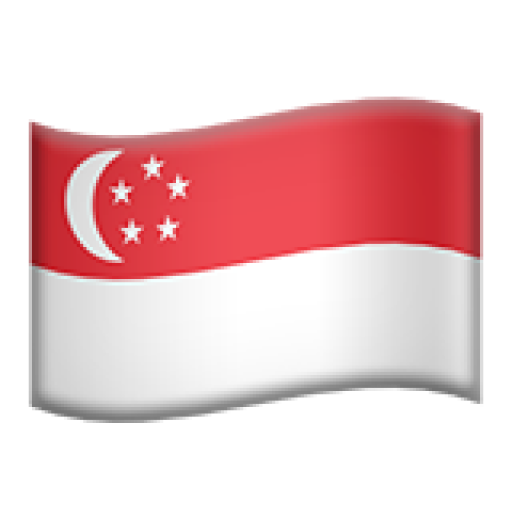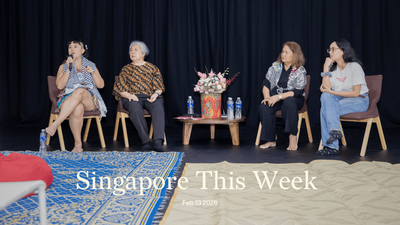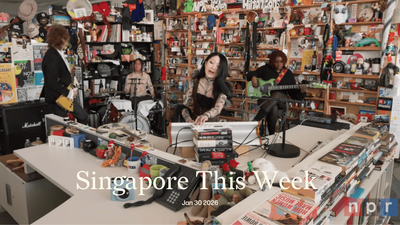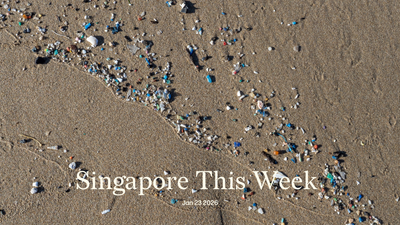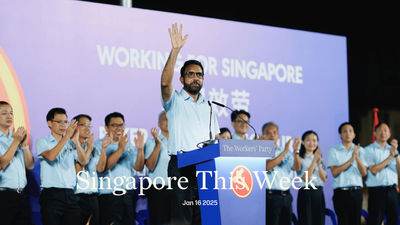Society: Great, Greater, Greatest
In its financial year 2022, the Great Eastern (GE) Holdings Group made a S$784m profit; in 2023, S$775m; and in 2024, S$995m. When Khor Hock Seng, CEO for nine years, retired last October, the firm thanked him with an extra S$2.1m ex-gratia payment, taking his total remuneration for that partial year alone to over S$3.4m. This exuberant performance, at the largest insurer in Malaysia and Singapore, is partly why OCBC Bank, which owns over 90 percent of GE, wants to acquire it completely. Yet money flows not from compassion, but aggression, as Singaporeans were reminded last month. GE announced that it would no longer issue pre-authorisation certificates for patient admissions to Mount Elizabeth Hospital and Mount Elizabeth Novena Hospital, both operated by IHH Healthcare Singapore (IHH). Those insured can still go there for procedures, but they’ll have to first foot the bill, with no guarantee of reimbursement.
This uncertainty will nudge them (and doctors who want to treat them) towards alternatives. Doctors and others associated with IHH are up in arms, in a move that’s been described by medical experts on CNA as “unprecedented in the decades-long history between healthcare payers and providers.” Ordinary Singaporeans may have little sympathy for any of these groups: “greedy” insurers or “predatory” hospitals, as they’ve been called online, or even the privileged patients who want cushy rooms on Orchard Road’s doorstep. Yet GE’s move, especially if other insurers follow suit, will exacerbate the strain on public healthcare facilities, affecting all. Already more than half of Singaporeans with private hospital integrated shield plans (IPs) choose public for treatment, what with spiralling co-payments and other fees inspiring caution.
Though doctor fee inflation has been moderated in recent years, CNA argued, facility fees haven’t, which is what GE is attacking. IHH defends the higher fees because of the holistic, unique medical services offered at its Mount Elizabeth facilities. The experts, stressing the “clear mutual dependence” between insurers and private healthcare providers, call for stronger consumer protection, possibly through IP portability, and greater transparency and data to aid all stakeholders in decision-making. This week, Ong Ye Kung, health minister, said that the Ministry of Health (MOH) is helping to “untie” the knot that insurers and private hospitals have gotten themselves in.
With every party seemingly pointing their finger at others, patients are left to grapple with financial and medical precarity. Ultimately, with public and private healthcare spending skyrocketing, it’s the neoliberal, market-based order that we must interrogate. It’s one that squeezes the lifeblood not just out of desperate patients, but nurses and other middling workers trapped in unequal hierarchies. Is Singapore’s healthcare system positioned to deliver the best healthcare outcomes for an ageing population? Or, rather, to deliver frothy profits to our financial giants?
Some further reading: The CNA commentary by Sheryl Ha, Jeremy Lim and Taufeeq Wahab is a good primer with useful recommendations. See Ong and MOH’s explanation for the establishment view. For some humour, read “Grape Cistern Insurance Company: Operation Great Pincer”, a satire by hobbitsma, an “unknown doctor in some unknown shire”, who has for years published incisive commentaries on the medical industry while maintaining anonymity.
Society: Watching the watchers
Imagine being on medical leave and forced by your company to share your real-time location if you decide to go out. Even Orwell couldn’t have dreamt up this form of labour surveillance in a 21st century global city. It caused, according to one worker at Certis, a Singapore-headquartered security firm, “immense psychological stress and violated my right to privacy. I complied under fear of reprisal.” Frontline officers on sick leave not found at their registered residence when a manager pays them a surprise, “Get Well Soon” house visit, will have to submit their live GPS location via WhatsApp or jump on a video call. Thankfully, they’ll no longer be required to do so, following a meeting between Certis management and the Union of Security Employees (USE).
After a Certis officer tipped off the media, the policy sparked a public backlash and an online debate. Experts warned about eroding the employer-employee relationship. “This case isn’t just about a policy gone wrong. It’s about what happens when HR…leads from fear instead of trust,” wrote Calvin Ong, chief people officer of an AI solutions company. “When you design policies to punish the 99% for the 1% who might abuse the system, you’ve already failed.” The Ministry of Manpower weighed in: “…[T]here could be legitimate reasons as to why an employee might not be home. This should not be taken as conclusive evidence of misconduct.” Others expressed concern that workers may be discouraged from taking time off when ill, which they’re entitled to do, further impacting their health and well-being. The company claimed that the new measure wasn’t meant to be punitive. A spokesperson told The Straits Times that it had sought to tackle system misuse (such as when officers were discovered taking medical leave to travel overseas), ensure staff well-being, and to more effectively manage manpower.
Netizens have praised USE for scoring an important win for its members, particularly since there isn’t an explicit constitutional guarantee to the right of privacy in Singapore. USE’s triumph could also add some shine to a lacklustre National Trades Union Congress (NTUC), of which the security union is an affiliate. Singapore’s tripartite system has given NTUC an image problem, not helped by its apparent “symbiotic” relationship with the ruling People’s Action Party (PAP) and seemingly blind adherence to the government’s pro-business agenda—at the expense of workers’ rights and welfare. This has resulted in public scepticism and criticism (including from Jom here and here) of the value and purpose of Singapore’s labour movement. Once in a blue moon, though, our unionists remind us they can still do their job.
History Weekly by Faris Joraimi
A history lesson by Ho Ching, wife of ex-prime minister and current PAP chief Lee Hsien Loong, provoked some controversy last week. In a Facebook essay exceeding 500 words, she declared that Singapore had no significant history before 1819. It reads like a school textbook from decades past. Whispers of Temasik and Sang Nila Utama were “sketchy mentions at best, and do not speak of a large or significant thriving kingdom.” Archaeological finds at Fort Canning suggest the presence of a local warlord. The records went silent, and local dynasties were passing clouds, fleeing from one refuge to another. Singapore was a fringe of various neighbouring empires, until European explorers came and dominated the region through conquest and diplomacy. Only the British miracle-worker Stamford Raffles “gave life to Singapore”.
This interpretation of history is by no means uniquely Ho’s, and probably remains influential. But while the evidence we have of early Singapore is indeed uneven and imperfect, we now know a lot more than we used to, especially about the so-called “black hole” between the fall of the old Singapura kingdom and the arrival of Raffles. Between the 15th and 18th centuries, Singapore was an important domain of the Malacca and Johor sultanates, sometimes ruled by a Shahbandar (harbourmaster), a Raja Negara Selat (Ruler of the Realm of the Straits) who commanded all the Orang Laut living in Singapore’s surrounding islands, and finally the Temenggong. Singapore waters were the scene of major events in world maritime history; the 1603 Dutch capture of the Portuguese ship “Santa Catarina” off Changi triggered legal debates about seizure and sovereignty that still shape today’s international Law of the Sea. Singapore was strategic enough that the Acehnese in 1613 besieged its town with over 20,000 men while invading Johor. Singapore shows up repeatedly in European maps, encyclopedias, dictionaries and novels in these centuries, because it was a known landmark.
Puzzlingly, Ho’s post insists on a view that not only professional historians, but the government itself no longer endorse. Since the Bicentennial in 2019, the official national history now stretches back “seven hundred years” before Raffles, to the time of Sang Nila Utama. But that new Singapore Story is no neat solution either. In our Jom commentary next week, we’ll go deeper into the problems raised by the quest for a national history.
Arts: A bar for Homepar
Sixty people, elbow-to-elbow and shoulder-to-shoulder, in a cozy room where the entertainment is just a few feet away. Home party or dramatised reading of a play? It’s both—and neither. Playwright Mitchell Fang’s “Homepar”, a work-in-progress play about the house parties that often doubled up as places of refuge for the gay community, was essentially banned from the stage. A fortnight ago, and just a day before it was meant to be shown to a small audience for feedback and revisions, “Homepar” was proscribed by the powers that be. The Infocomm Media Development Authority (IMDA) and the Ministry of Home Affairs (MHA), in a rare joint statement about a theatre production, claimed that the script “glamorises drug abuse” and “undermines Singapore’s anti-drug policy, our drug rehabilitation regime and public confidence in the [Central Narcotics Bureau]”, and thereby our national interests. An earlier version of the script could have been staged with an R18 rating, the authorities implied.
Scripts, as with all genres of writing, regularly evolve with input from dramaturgs, performers and directors, in rehearsals or otherwise. It’s part of a creative process that tightens dialogue, hones narrative, and sharpens a playwright’s craft. The joint statement also managed to squeeze in a bit of a spoiler: that the new material “portrays an undercover...officer shielding abusers from detection”. Wild Rice and its founding artistic director, Ivan Heng, have categorically refuted this. Heng wrote in a social media post: “Like the [MHA], we are concerned about the rising incidence of drug abuse among our youth. And like them, we care deeply about the future. But banning plays does not solve problems.” The theatre company added that it was committed to “responsible storytelling” of “complex, often uncomfortable realities”, and reiterated that “Homepar does not ask audiences to approve of drug use. It asks them to understand the human stories behind it, and to imagine the possibility of recovery and belonging.”
A 2021 study by researchers from the National University of Singapore, Action for AIDS Singapore and National University Hospital found that public health communication here might be more effective when substance use among gay men is framed as an issue of mental health, “rather than criminalized and stigmatized”. The study traces “chemsex”, or sexualised substance use, to an institutional and societal stigma that instils internalised homophobia. Chemsex is used as a “coping mechanism”, not helped by “barriers to accessing substance use recovery and care services”. It’s not altered states these groups are seeking: it’s an altered discourse about drugs.
Tech: Singapore’s SaaS Cinderella
Household names in the global software-as-a-service (Saas) space include Adobe, SalesForce and Shopify. Yet it’s a relatively prosaic sounding company, Info-Tech Systems, that’s been steadily growing in Singapore since it was founded here in 2007. It provides HR management and accounting software to SMEs, and in FY2024, recorded over S$40m in revenue and S$12m in earnings, with 75-80 percent of its revenues in Singapore, and the rest in countries such as Hong Kong, India and Malaysia. It’s just become the first listing on SGX’s mainboard in two years, commanding a reasonable S$200m market cap while only looking to raise S$23.4m. This IPO, while not the largest in size, shatters two big myths in the local tech ecosystem: that SGX investors won’t back tech; and that venture capital is the only path to success.
The numbers tell an enviable story: 91 percent customer retention, dual growth engines in HR and accounting software, and founders retaining over 70 percent ownership post-IPO (set to be worth S$140m post-listing). Unlike cash-burning start-ups, which constantly return to investors for more funding, Info-Tech demonstrates how sustainable unit economics can create real wealth.
For Singapore’s tech ecosystem, this listing is more than a liquidity event. It’s a masterclass in building value the old-fashioned way. The company’s 2007 founding predates the often trotted “growth at all costs” mentality, proving patient capital and product-market fit still win races. As SGX seeks to revitalise its tech pipeline, Info-Tech offers a compelling template where companies that solve real business problems can charge for it and scale profitably. The market’s enthusiastic response includes notable investors such as Avanda Investment Management, Dymon Asia, Lion Global Investors, Maybank Asset Management Asia and Nikko Asset Management Asia. This also suggests investors will reward substance over hype. But how many founders are willing to take the often longer and harder road?
Tech: Alibaba Cloud joins Singapore’s AI race
Another week, another AI hub. Alibaba Cloud is making a major push into South-east Asia’s AI sector with its new Global AI Innovation Hub in Singapore, signalling its commitment to being part of the city-state’s growing role as a regional AI epicentre. The virtual hub aims to support over 5,000 businesses and 100,000 developers worldwide, offering access to advanced AI tools, computing resources, and industry-specific solutions. Alibaba is not alone. Other companies that have launched new AI initiatives recently include Google Cloud’s AI Cloud Takeoff programme, as well as Heineken and Salesforce.
The launch coincides with significant infrastructure expansion across the region, including new data centres in Malaysia and the Philippines. These facilities are part of Alibaba’s massive S$67.5bn global investment plan in cloud and AI infrastructure over the next three years.
Alibaba has also invested in the local talent pipeline through education partnerships with the Nanyang Technological University (NTU) and Singapore University of Social Sciences. The Alibaba-NTU Global e-Sustainability CorpLab aims to bring together 200 scientists and engineers over the next five years from both NTU and Alibaba to work on AI-related sustainability issues. While the virtual hub model promises wide accessibility, its success will depend on attracting meaningful industry participation and navigating complex regional data regulations. This multi-pronged approach demonstrates Alibaba’s strategy to establish itself as a key player in Asia’s AI revolution, while competing with global cloud providers. A bit like all the other hubs.
Faris Joraimi, Corrie Tan, Tsen-Waye Tay and Sudhir Vadaketh wrote this week’s edition. Additional contributions by Liyana Batrisyia and Sakinah Saifee.
If you enjoy Jom’s work, do get a paid subscription today to support independent journalism in Singapore.

